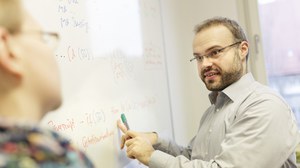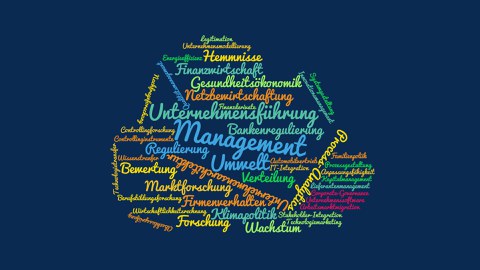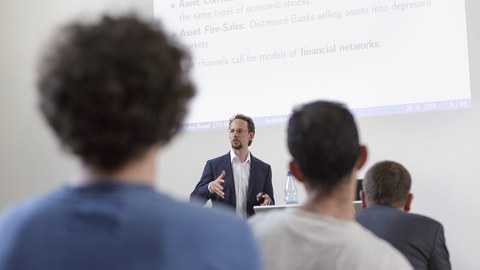Research activites of the faculty
As a university of excellence and member of TU9, TU Dresden wants to play a pioneering role in the development of new technologies in order to meet the great challenges of our time. This requires global thinking and the overcoming of disciplinary boundaries by consistently combining engineering knowledge with knowledge from other disciplines. The Faculty of Business and Economics is interdisciplinary in both, teaching and research, and its chairs provide links to the engineering sciences as well as the humanities and social sciences.
 © Klaus Gigga
© Klaus Gigga
Research activites of the faculty
This is already being realized to a large extent in the areas of environment and energy management as well as operations and logistics management. These focal points are distinctive profile-forming areas. They offer very good starting points for cooperation with other faculties and competence centers such as PRISMA - Center for Sustainability Assessment as well as external research institutions such as UNU-Flores.
In economic research the faculty has clearly focused on issues of globalization and international economic policy. This is a reaction to the trend that many current events and developments, such as brexit, trade conflicts, financial and currency crises or climate policy, increasingly have international and global implications. Here, too, there are close links to other faculties and research institutions such as the ZIS, Leibniz Institute for Ecological and Regional Development (IÖR), and the ifo Institute Dresden.
Research in Business Information Systems is both business administration-oriented and technology-driven. Research topic of both areas are linked and combined to complete concepts and solutions. The interaction of people, organization, engineering and technology plays a central role in this process. Beginning with theoretical questions, through technology-oriented concepts to application-oriented solutions, theoretical findings find their way into practice-relevant application areas and problem solutions. The increasing importance of data science in the business world is already reflected in various research and teaching contents. This will be followed by further development towards the future field of artificial intelligence.
In the face of demographic change, topics such as international (strategic) human resource management, diversity management, digital HRM or organizational behavior will continue to gain in importance at the faculty, whereby a holistic interdisciplinary perspective on companies as socio-technical systems is in the foreground.





